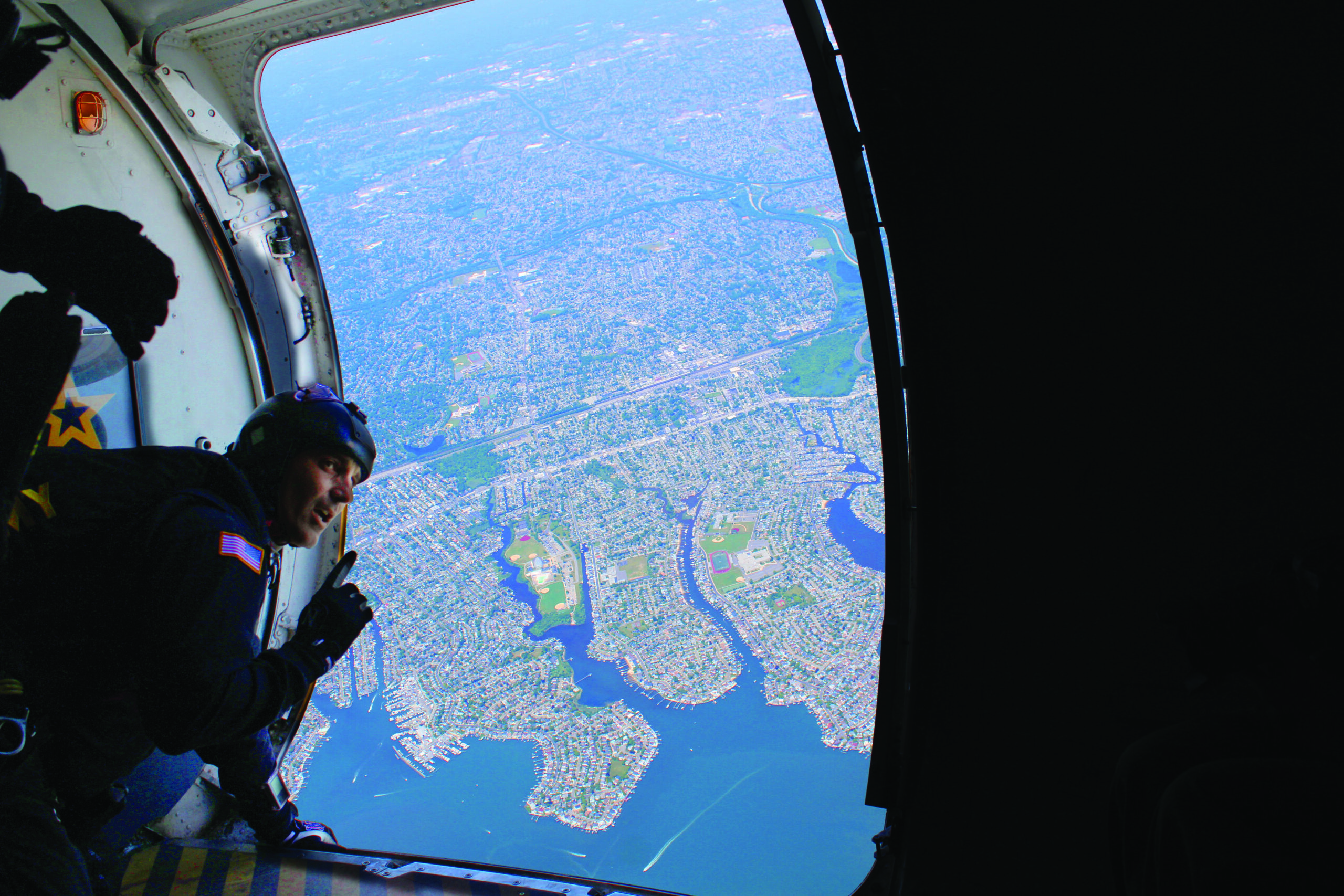Photo credit: Matt Meduri
The Jones Beach Air Show has been a regional attraction that draws tourism from around Long Island, the NYC Metro Area, and beyond for twenty years.
To celebrate the twentieth anniversary of the show, as well as the ninety-fifth anniversary of the opening of Jones Beach, the famed Blue Angels (pictured below) took to the skies to headline this year’s event.
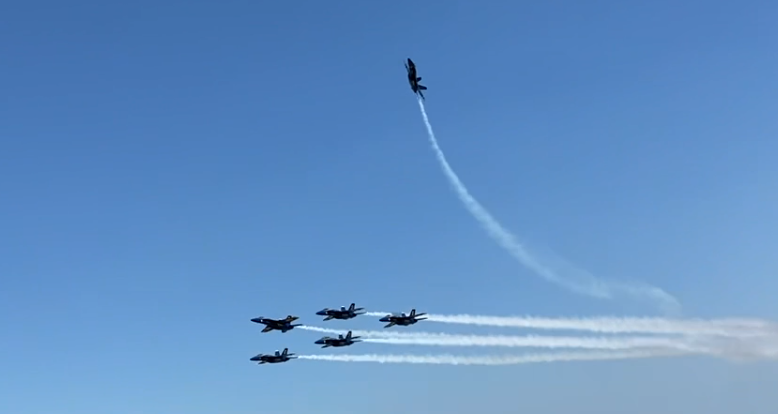
The Messenger was also on hand to take to the skies with another prestigious group of air stuntmen: The U.S. Army Parachute Team, the Golden Knights. (pictured below)
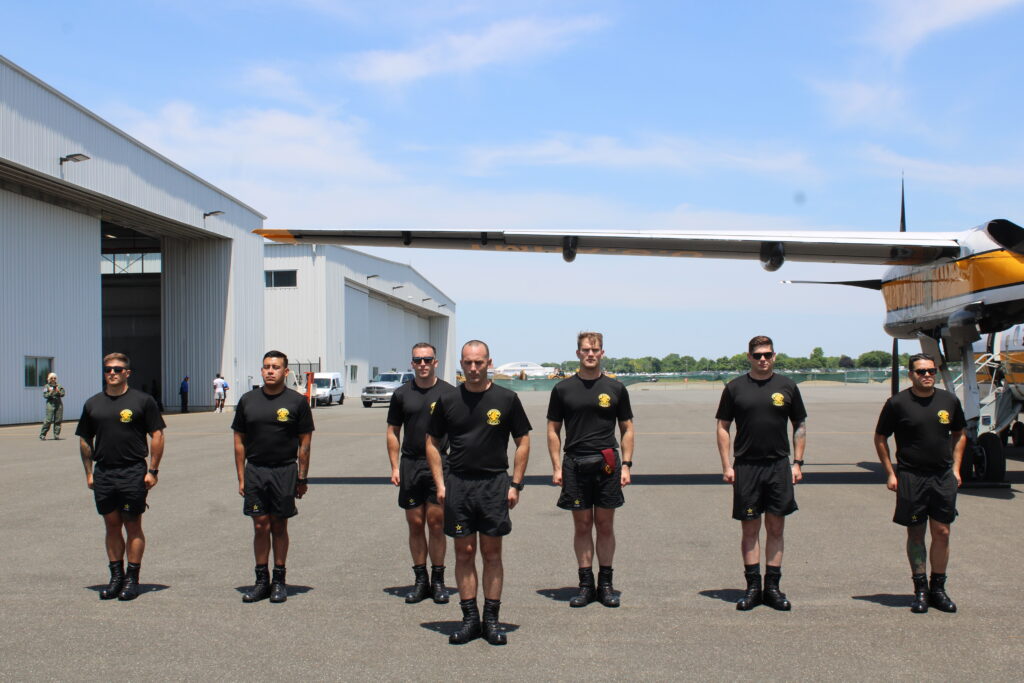
Started in 1959, the Strategic Army Corps Sport Parachute Team (STRAC) was formed with nineteen Airborne Soldiers from several military units to compete in skydiving, then a sport dominated by Soviet communists. As the USSR had a large interest in airborne operations from a military perspective, the Soviet Union pioneered the sport in the 1930s.
In 1961, the U.S. Army formally designated and activated STRAC as U.S. Army Parachute Team and nicknamed them “the Golden Knights.” The name stems from their ability to win gold medals in high-profile competitions and their ability to “conquer the skies.”
The team supports the Army Recruiting Command and their Marketing and Engagement Brigade with their series of parachuting stunt shows around the country. The members of the team also participate in technical and research development of parachuting and airborne activities to help improve the military’s combat readiness.
Annually, the team performs more than 20,000 jumps in front of roughly twelve million people. They have performed more than 14,000 shows in all fifty states and forty-eight countries.
The team is stationed at Fort Bragg, North Carolina, home of the Airborne and U.S. Army Special Operations Command.
The Messenger received the rare opportunity to speak with some of the members of the team and look on as they dove out of their signature aircraft to entertain thousands of beachgoers on Saturday afternoon.
Brandon Hexum, a native of Peoria, Illinois, told The Messenger how the program works.
“We’re all enlisted in the Army. I enlisted as an infantryman and served with the 82nd Airborne,” said Hexum. “We all go through an eight-week selection process. If you make the team, this is your full-time job.”
Hexum says that there’s multiple subsections within the team, labeled as A Team, B Team, and C Team. Hexum dives with the B Team.
Hexum says that his long love of skydiving prompted him not just to try out for the Golden Knights, but to join the Army as well.
“Growing up in Illinois, I jumped at Skydive Chicago quite a bit. The Golden Knights were there for a tandem camp, and at that point I had no intentions of joining the Army. I talked to the Knights and they ultimately talked me into joining the Army,” said Hexum.
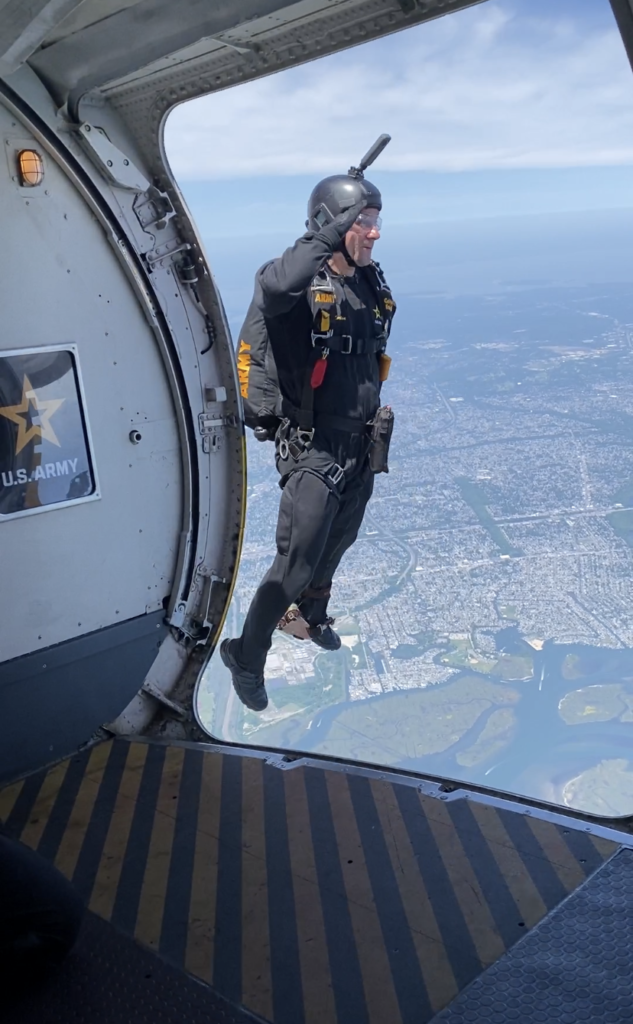
Hexum described some of the maneuvers on display at Jones Beach. A baton pass is when two divers free fall together, complete several spins together, and then break apart. He also described a sophisticated maneuver, called canopy relative work, in which one diver joins another midair and slides down the lines of the diver’s parachute. They briefly hook together, separate, and then fly their separate parachutes to the ground.
The Golden Knights jumped from 9,000 feet over Jones Beach (pictured below), and The Messenger got to watch and learn not only as they jumped out of the plane, but as they also ensured conditions were suitable for skydiving.
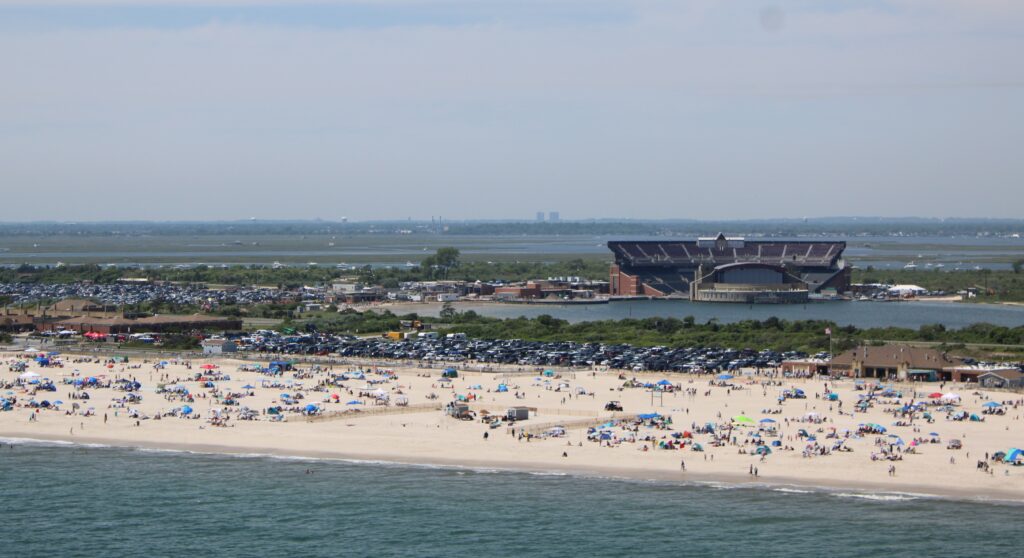
With quick relay communications to the pilots, the team was able to determine the wind speeds midair.
One diver told The Messenger that if winds are too strong or in an unfavorable direction, the conditions are not suitable for their highly-technical displays.
All went off without a hitch, however, as all teams successfully completed their maneuvers and all spectators had a memorable time at the Twentieth Anniversary Jones Beach Air Show.
The Messenger thanks the Golden Knights for an incredible opportunity to take to the skies with them.




